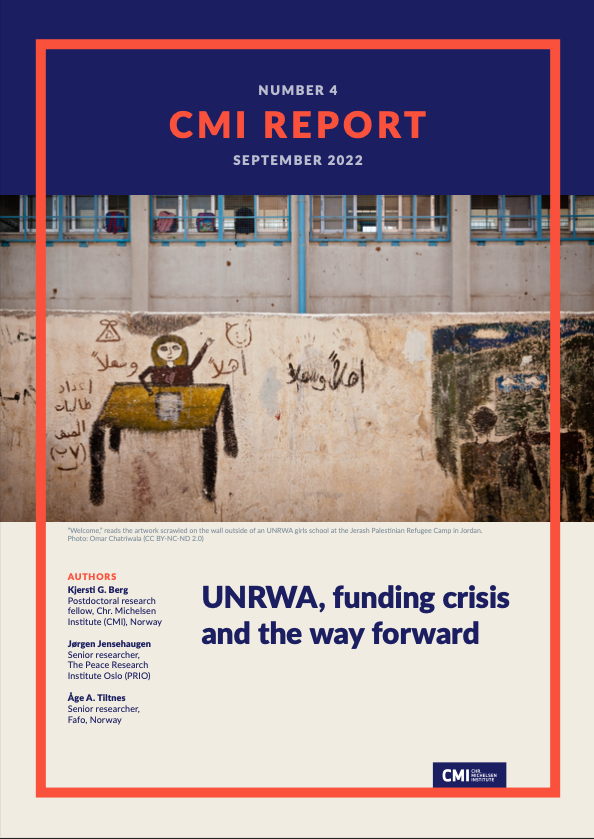
A CMI report co-authored by PRIO researcher Jørgen Jensehaugen takes stock of the UNRWA, its role and way forward in context of a funding crisis.
The United Nations Relief and Works Agency (UNRWA) has been the primary provider for state like services such as education, healthcare for millions of Palestinian refugees living in limbo in Gaza, the West Bank, Syria, Lebanon, and Jordan for over seven-decades. The future of the organization is uncertain due to a trend of shrinking funding for operations and a current funding crisis. The question of Palestinian refugees remains persistently absent from discussions by the international community. UNRWA's uncertainty impacts a growing number of people dependent on its services.
This new comprehensive report written by Kjersti G. Berg (CMI), Jørgen Jensehaugen (PRIO) and Åge Tiltnes (Fafo), and commissioned by the Norwegian MFA, provides an overview of UNRWA's role while emphasizing how the funding crisis can lead to a variety of future possible scenarios. The first part considers what UNRWA is, its services and highlights the lack of a durable solutions mandate. The report then presents eleven possible future scenarios. Scenarios one to six range from bad to worse, considering strict austerity measures and restrictions of access to UNRWA services. These scenarios would hurt those most in need, and many of them would paradoxically not greatly improve the UNRWA's economic standing. Scenarios seven to eleven consider a range of other developments, including UNRWA securing more funding, the political context changing drastically or even a full UNRWA collapse.
The future scenarios discussed in this report are not proposals, rather they emerge as an analysis of the possible but unfortunate or unlikely outcomes of the current funding crisis.
All options are difficult as UNRWA is squeezed between donors who want to cut funding due to domestic pressures, refugees who want things to remain the same, host states that depend on UNRWA to take care of refugees within their state jurisdictions and politicians who politicize UNRWA as the problem.
The full report is available for download on the CMI website.





